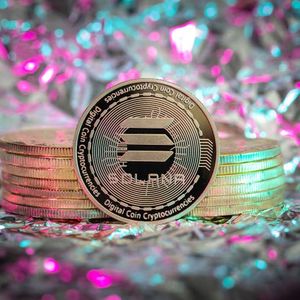Solana ETFs: Summer Of SOL
5 min read
Summary The SEC has initiated its typical review process with issuers over their spot Solana ETFs filings, which means that approval of spot Solana ETFs is imminent. Volatility Shares launched two crypto-linked Solana ETFs (i.e., not spot Solana products) — the Solana ETF and the 2x Solana ETF — on March 20, 2025. Currently, eight issuers have filed S-1s for spot Solana ETFs: VanEck, 21Shares, Canary Capital, Bitwise, Grayscale, Franklin Templeton, Fidelity, and CoinShares. The SEC has initiated its typical review process with issuers over their spot Solana ETFs filings, which means that approval of spot Solana ETFs is imminent — possibly within the next few weeks. General consensus among analysts and the broad public is optimistic on approval. Polymarket puts the possibility of Solana ETF approval at 91% in 2025 and at 68% by July 31. If approved, a spot Solana ETF would provide regulated access to Solana through brokerage platforms without the complexities of crypto wallets or crypto exchanges. It could also pave the way for broader institutional adoption and inclusion in diversified basket ETFs alongside bitcoin and ether. Here’s what advisors and investors need to know about the potential products and issuers involved. Solana Potentially the Next Spot Altcoin ETF Solana ( SOL-USD ) is a blockchain platform that is generally faster and cheaper than Ethereum ( ETH-USD ). According to CoinMarketCap, Solana is currently the sixth-largest cryptocurrency, with around 2.4% market share in the overall cryptocurrency sector. Futures-Based Solana ETFs Have Relatively High Inflows Volatility Shares launched two crypto -linked Solana ETFs (i.e., not spot Solana products) — the Solana ETF ( SOLZ ) and the 2x Solana ETF ( SOLT ) — on March 20, 2025. SOLZ currently has almost $20 million in assets, while the leveraged SOLT has almost $45 million. While $20 million in the non-leveraged SOLZ product doesn’t seem like a lot, those assets are already in the same ballpark as the third and fourth-largest spot ether products: the Grayscale Ethereum Mini Trust ( ETH ) and the Fidelity Ethereum Fund ( FETH ) which have just over $20 million each. And YTD, SOLZ actually has some of the highest net inflows relative to other altcoin products. 8 Issuers Have Filed S-1s for Spot Solana ETFs Currently, eight issuers have filed S-1s for spot Solana ETFs: VanEck, 21Shares, Canary Capital, Bitwise, Grayscale, Franklin Templeton, Fidelity, and CoinShares. VanEck Solana ETF (VSOL) – link to S-1 21Shares Core Solana ETF (no ticker) – link to S-1 Canary Marinade Solana ETF (no ticker) – link to S-1 Bitwise Solana ETF (no ticker) – link to S-1 Grayscale Solana Trust ( GSOL ) – link to S-1 Franklin Solana Trust (SOEZ) – link to S-1 Fidelity Solana Fund (no ticker) – link to S-1 CoinShares Solana ETF (no ticker) – link to S-1 Out of the usual players, all issuers who currently have spot bitcoin and spot ether ETFs have filed for an S-1 except for BlackRock (iShares) and Invesco Galaxy. Invesco Galaxy has taken some early steps toward a Solana ETF, but has not yet officially filed an S-1. Simultaneous Product Launches Can Benefit Larger Issuers The SEC has traditionally launched similar crypto products simultaneously rather than on a rolling basis. In other words, all spot bitcoin ETFs were launched on the same day and all spot ether ETFs were launched on the same day despite different filing dates. Following this precedent, Solana products will likely be launched on the same day. The reason for the above has to do with several factors. First of all, it was assumed to “level the playing field” and provide opportunities to all issuers to start off on the same foot. It also simplifies the SEC’s internal review process, especially for novel asset classes like cryptocurrencies, where legal, technical , and compliance issues require ongoing dialogue across multiple filers. But this process has historically benefited larger, well-known issuers. During both bitcoin and ether launches, BlackRock and Fidelity products gained significantly more assets than smaller competitors. When faced with the choice of almost identical products with identical fees, advisors and investors are likely to choose by name recognition, which gives larger asset managers an edge over smaller or lesser-known issuers. Several Early Issuers Urge SEC to Reconsider “First to File” Model On June 5, several issuers including VanEck, 21Shares, and Canary Capital submitted a joint letter to the SEC asking them to return to the “first to file” approval model. They argue that simultaneous launches take away incentive for early filers and, by default, take away motivation to innovate and develop new products. VanEck has traditionally been an early filer. They were the first ETF issuer to file for a bitcoin futures ETF and a spot Solana ETF. They were also one of the first issuers to launch a crypto equity ETF. In the case of Solana, Fidelity filed much later than most of the other issuers, but has the potential to gain the most assets due to its brand recognition and scale. While BlackRock has not yet filed for a Solana ETF, it is possible they could also throw their hat into the ring, which could further skew potential assets for the current issuers. Staking Will Potentially Be Included in Solana ETFs… & More Filings for Solana ETFs have included provisions for staking. Staking is an important part of Solana’s investment appeal. According to Coinbase, the yield on Solana is over 5%, while the APY of ether is closer to 2%. When spot ether ETFs were launched last year, they had to remove language about staking. Now they have filed again after the fact. The SEC seems more supportive of staking, according to a statement released on May 29. This shift in regulatory stance suggests that the SEC may approve staking provisions in both Ethereum and Solana ETFs simultaneously, potentially as early as this summer, which would align these ETFs more closely with their underlying crypto assets. Issuers Actively Filing for Several Other Altcoin ETFs Out of the eight issuers filing for Solana ETFs, Grayscale has the most active filings with the SEC (mostly conversions), followed by Canary Capital. Grayscale: Grayscale Litecoin Trust , Grayscale XRP Trust , Grayscale Dogecoin Trust , Grayscale Avalanche Trust , Grayscale Cardano Trust , Grayscale Polkadot Trust , Grayscale Hedera Trust , conversion for the Grayscale Digital Large Cap Fund (GLDC) Canary Capital: Canary XRP ETF , Canary HBAR ETF , Canary Litecoin ETF , Canary SUI ETF , Canary Staked TRX ETF , Canary Staked CRO ETF 21Shares: 21Shares Core XRP Trust , Polkadot , 21Shares Dogecoin ETF , 21Shares SUI ETF Bitwise: Bitwise XRP ETF , Bitwise Dogecoin ETF , conversion for the Bitwise 10 Crypto Index Fund ( BITW ) CoinShares: CoinShares XRP ETF , CoinShares Litecoin ETF VanEck: VanEck Avalanche ETF , VanEck BNB ETF Franklin: Franklin XRP ETF Fidelity: N/A Potential Spot Solana ETF Issuers Have Wide Range of Existing Crypto Assets For reference, here is the current standing of products for the eight issuers discussed. All of these issuers except for Canary Capital already have crypto ETFs (Canary has institutional funds available). Disclosure: © VettaFi LLC 2025. All rights reserved. This material has been prepared and/or issued by VettaFi LLC (“VettaFi”) and/or one of its consultants or affiliates. It is provided as general information only and should not be taken as investment advice. Employees of VettaFi are prohibited from owning individual MLPs. For more information on VettaFi, visit www.vettafi.com Original Post Editor’s Note: The summary bullets for this article were chosen by Seeking Alpha editors.

Source: Seeking Alpha



